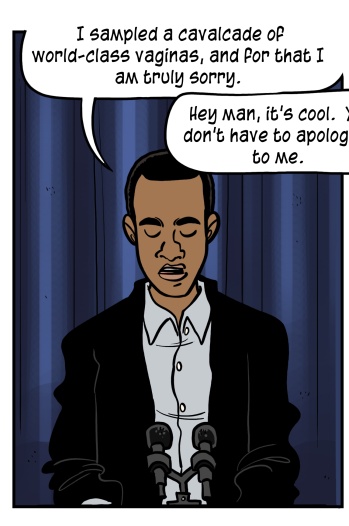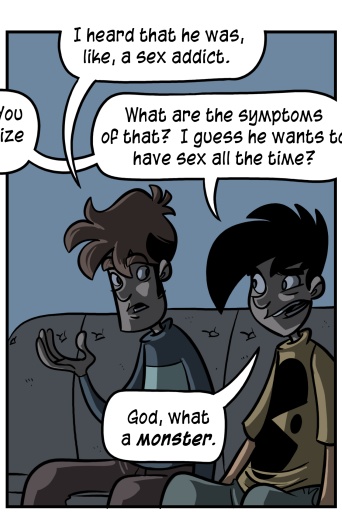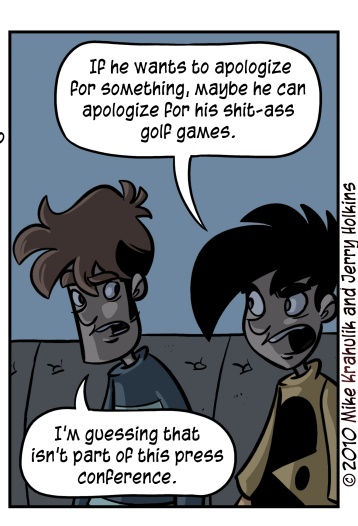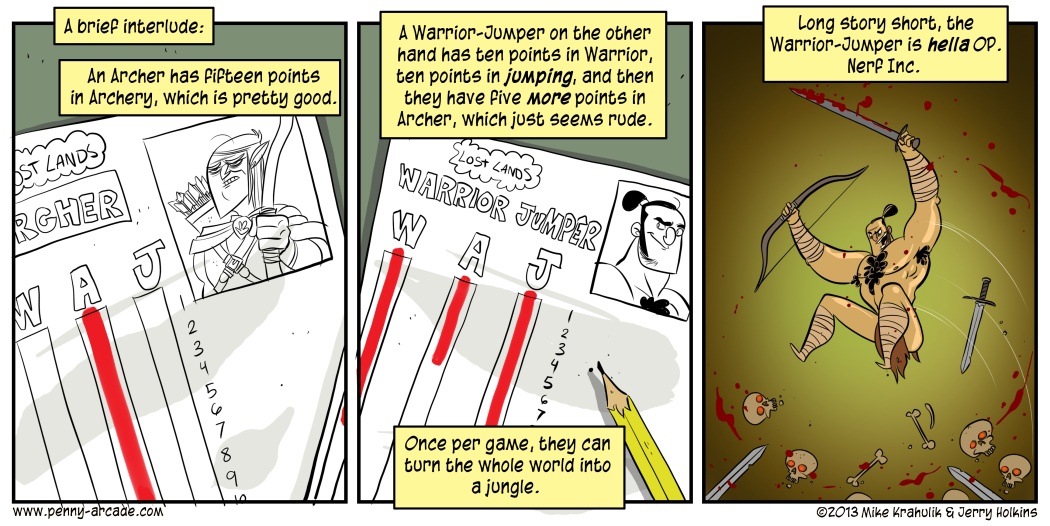Sometimes I am exposed to the larger culture. I'm rarely improved by the process.
It had been my intention to eat a hamburger, as is so often the case, and while doing so the restaurant's televisor felt it was important that I know Tiger Woods was very sorry. Then some other people came on and talked for awhile about whether or not he had been sufficiently sorry, but the people wondering this weren't handsome young men, and they didn't really seem like they were the best in the world at anything, and frankly they seemed kind of angry that they weren't Tiger Woods. It was like watching a witch trial.
The holes they have in golf are not large, by any means. In fact, they're quite the opposite. And striking a golf ball in such a way so as to introduce one to the other reliably is the only thing I ever expected from him. He's got shit to answer for, certainly, but it never came up.
The inbox discussion surrounding the strip and post for "A Cyclical Argument With A Literal Strawman" continues. I was surprised to see our position called anti-consumer, which doesn't really work. That data isn't present in the strip, or in the post - the only way to find it is to insert it. That's something you can only do if you see this conflict as a binary proposition: consumers versus publishers. I assert that this is not the case. The binary model as rendered here is a fallacy, and those who propose it are committing fallacio.
It's a term.
Pirates are not consumers by definition, and exert a force on the industry which is distinct from the parties listed above. This conflict is squarely between pirates and publishers, and the people who buy games and play them and love them don't get a vote.
Pirates collaborated at a deep level with Ubisoft on this thing, in the way that Doctors "collaborated" with microorganisms to create resistant strains of bacteria. It's evolution. If the games that are making money on the platform do so by requiring connections to remote servers, a la MMOs or Battle.net, well, here's your constant connection. I'm not saying it's right, indeed, I've already said this can't possibly be a long-term solution. Nobody wants to run this shit forever. What I'm describing is the epidemiology of the situation.
I once described the positions of both sides as a kind of performance art, and these performances have only become more earnest in the interim period. One side claims that piracy has no effect on the industry, and the other claims that piracy results in an annual loss, adjusted for inflation, of infinity dollars. This is a hot war. So try to imagine the next copy protection, the one after this. You can feel it, as much as hear it; those terrible hooves beyond the hill.
(CW)TB out.



